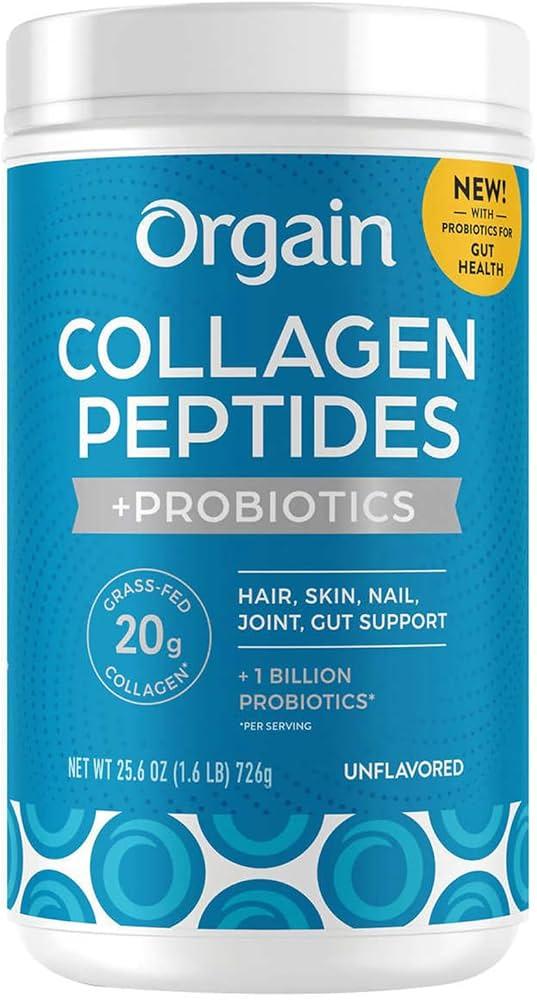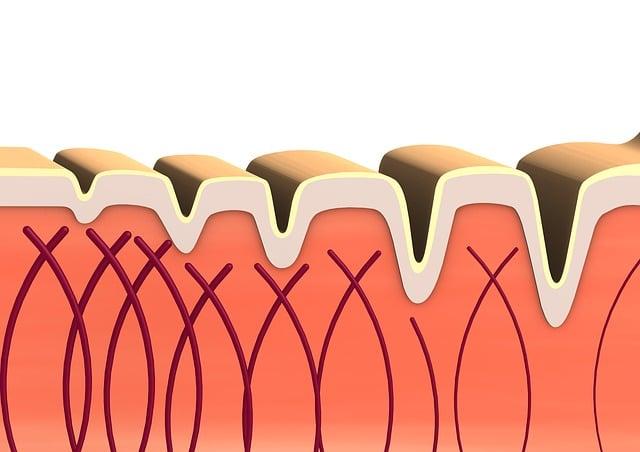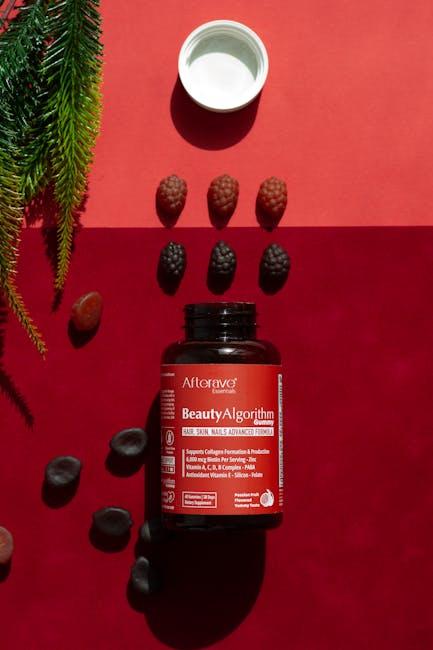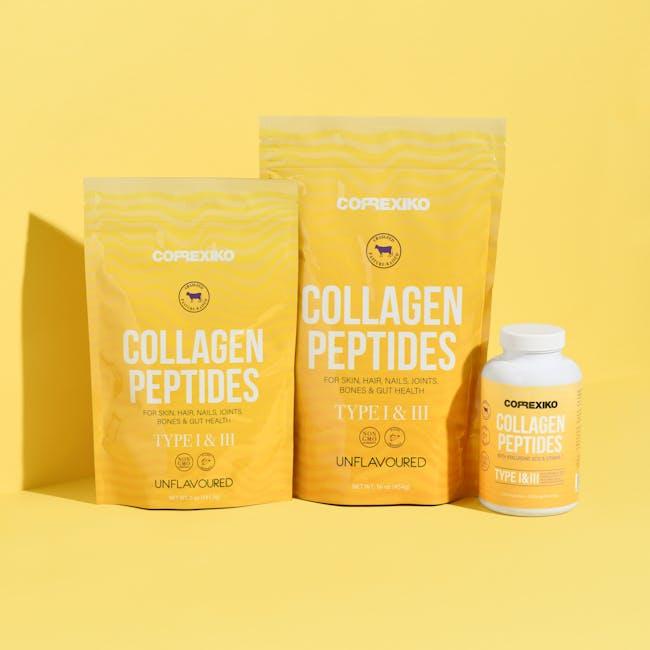In the world of fitness and athletic performance, post-workout recovery is often overshadowed by the more glamorous aspects of training—running faster, lifting heavier, or nailing that perfect yoga pose. Yet, the importance of recovery cannot be overstated, especially when it comes to safeguarding the body’s connective tissues, such as tendons and ligaments. Enter collagen peptides, a vital yet underrated ally in the quest for complete recovery. These bioactive compounds, derived from collagen through a meticulous process, have gained attention for their potential to bolster the health and resilience of our joints and connective tissue after physical exertion. In this article, we will delve into the science behind collagen peptides and explore their role in post-workout recovery, giving you insights into how they can support the very structures that allow us to move, stretch, and thrive. Whether you’re a seasoned athlete or a weekend warrior,understanding the benefits of collagen peptides may just be the key to unlocking a safer,more effective recovery strategy.
Exploring the Science Behind Collagen Peptides and their Role in Recovery
The remarkable world of collagen peptides reveals a complex interplay of biology that plays a pivotal role in recovery, notably for our tendons and ligaments. collagen,a key protein in the body,acts as the scaffolding that keeps our connective tissues strong and resilient. when we engage in intense physical activities, microscopic tears occur in these tissues, necessitating a well-coordinated healing process. Supplementing with collagen peptides can enhance this recovery by supplying the precise amino acids needed for tissue repair, such as glycine and proline.This, in turn, may result in increased collagen synthesis, supporting not only recovery but also overall joint health.
the benefits of incorporating collagen peptides into a post-workout routine extend beyond mere recovery. Studies have indicated that these peptides may improve the strength and flexibility of ligaments and tendons,promoting greater stability during activities that involve sudden changes in direction or impact. A few critical ways in which collagen peptides contribute to this process include:
- Improved joint flexibility: Enhancing the suppleness of connective tissues.
- Reduced inflammation: alleviating some post-exercise soreness.
- Enhanced elasticity: Boosting the functionality of ligaments during physical movement.
By incorporating these peptides, athletes and fitness enthusiasts can prioritize not only their performance but also their long-term health, ensuring that their bodies remain resilient and capable of handling the rigors of training.

Strengthening the Fabric of Movement: How Collagen Supports Tendons and Ligaments
Collagen, the most abundant protein in our bodies, serves as a fundamental building block for tendons and ligaments. These connective tissues play a crucial role in overall mobility and joint health, particularly for those engaging in intense physical activities. Incorporating collagen peptides into your post-workout nutrition can facilitate recovery and enhance performance by:
- Promoting Tissue Repair: Collagen peptides aid in regenerating damaged tendon and ligament fibers, expediting recovery after stress-induced injuries.
- Enhancing Flexibility: A solid collagen intake supports the elasticity of tendons and ligaments, allowing for more fluid movement and reducing the chances of strains.
Moreover, the unique amino acid composition of collagen peptides contributes to maintaining the integrity of your musculoskeletal system.By nourishing your body with collagen, you can ensure that your tendons and ligaments remain resilient, which is particularly beneficial for athletes and active individuals. Consider these advantages of collagen in your recovery strategy:
| Advantage | Description |
|---|---|
| Improved Joint Health | Collagen replenishes cartilage, leading to reduced pain and inflammation in joints. |
| Enhanced Performance | Stronger tendons and ligaments can improve overall athletic performance and endurance. |
| Supports Bone Density | Collagen’s role in promoting bone health can help prevent injuries related to weak bones. |

Incorporating Collagen Peptides into Your Post-Workout Routine
Integrating collagen peptides into your recovery regimen can significantly enhance your body’s ability to heal and strengthen following intense physical activity.After a workout, your muscles are not the only structures that require attention; your tendons and ligaments also bear the brunt of strain. By supplementing with collagen peptides,you can support these connective tissues,promoting not just repair but also future resilience. Consider the following ways to incorporate them:
- Add to Post-Workout Shake: Blend collagen peptides into your protein shake for a creamy, nutritious boost.
- Mix with Smoothies: Combine with fruits, greens, and yogurt for a refreshing recovery drink.
- Baking: Incorporate them in baked goods like protein bars or muffins for a convenient on-the-go snack.
- Soups and broths: Stir into your favorite soups or bone broths to enhance flavour and nutrition.
To make the most of your collagen intake, consider timing as well. Research indicates that post-exercise is the ideal moment for collagen absorption. When combined with vitamin C and protein,collagen production accelerates,benefiting your tendons and ligaments. Here’s a simple table illustrating the best combinations to optimize your recovery:
| Collagen Source | Complementing Nutrients |
|---|---|
| Hydrolyzed Collagen Powder | Vitamin C (e.g., oranges, kiwi) |
| Bone Broth | ginger and turmeric |
| Collagen Protein Bars | Nuts and seeds |

Choosing the Right Collagen Supplement for Optimal Recovery Results
When evaluating collagen supplements, it’s crucial to consider the source and type of collagen peptides. Look for products derived from high-quality sources such as grass-fed bovine,marine,or chicken collagen,as these are known to support joint,tendon,and ligament health effectively. Additionally, ensure that the peptides are hydrolyzed, which means they’re broken down into smaller amino acids that enhance absorption in the body. as you browse through options, prioritize supplements that contain additional nutrients like vitamin C, hyaluronic acid, or glucosamine, all of which can further enhance recovery preparation and promote overall joint health.
Another crucial factor in selecting the right collagen supplement is the dosage. Research suggests that a daily intake of anywhere between 5 to 15 grams can yield optimal results. To help you navigate through various options, the following table highlights some key aspects to consider:
| Brand | Source | Serving Size | Additional Ingredients |
|---|---|---|---|
| Brand A | Bovine | 10g | Vitamin C, Hyaluronic Acid |
| brand B | marine | 5g | MSM |
| Brand C | Chicken | 11g | Glucosamine, Chondroitin |
By assessing the source, form, dosage, and complementary ingredients, you can confidently choose a collagen supplement that aligns with your recovery objectives. Don’t forget to consult with a healthcare professional or nutritionist to tailor the supplement to your specific needs.
In Retrospect
the journey of post-workout recovery is a multifaceted endeavor, and collagen peptides emerge as a promising ally for those aiming to support their tendons and ligaments. As we push our bodies to their limits, it’s essential to consider not only performance but also the health and resilience of the connective tissues that enable our movements. By incorporating collagen peptides into your recovery routine, you may find a supportive partner in promoting joint integrity and overall musculoskeletal health.
While science continues to unveil the intricate roles these peptides play in our bodies,understanding their potential can empower us to make informed choices for our physical well-being. Whether you’re a seasoned athlete or a weekend warrior, the integration of collagen peptides might just be the additional tool you need in your recovery arsenal.
As you navigate your fitness journey, remember that a holistic approach—combining nutrition, hydration, rest, and conscious supplement choices—will pave the way for optimal recovery and longevity. So, consider giving collagen peptides a place in your regimen, and let each workout be a step toward stronger, healthier tendons and ligaments. After all, the road to recovery is just as vital as the path to performance.




